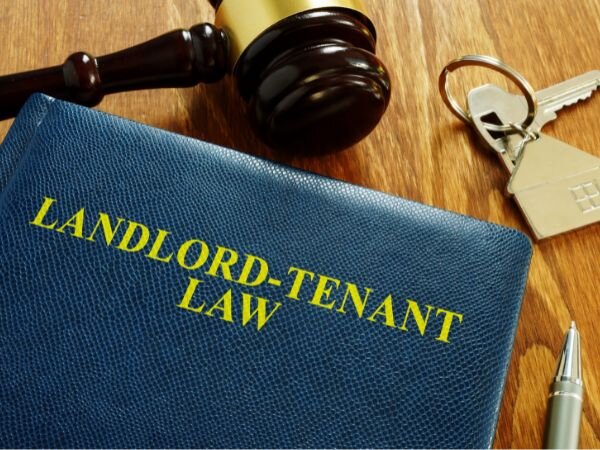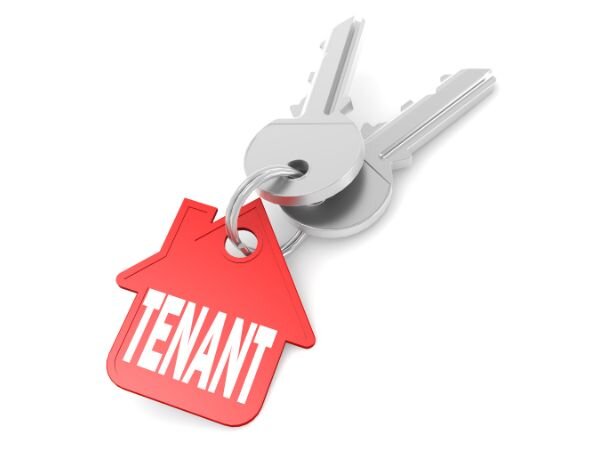
A tenanted Pennsylvania home can be sold if you know how. As an investor or first-time seller, you must know the regulations, tenant rights, and best techniques to sell your home. This book discusses how to observe the rules, talk to renters, and market the property for maximum rental. If you accomplish these things properly, you can close a contract, keep good tenants, and sell your home for the most in a competitive market.
Brief Overview
Selling a house in Pennsylvania requires knowledge of the law, tenant rights, and marketing. Sellers can encourage renters to cooperate and maintain their housing by following the contract, talking to tenants, and offering incentives. This ensures Pennsylvania law compliance and investor interest. Making your tenants happy and showing off a profitable home will help you sell and make a lot of money.
Key Highlights
- Why you must understand Pennsylvania’s complex tenant rights regulations to sell a rental property.
- Tenants must give notice before inspections and showings per the lease.
- Rental properties are excellent for fast-growth investors since they produce money constantly.
- Talk to renters and give them notice to ensure a smooth deal.
- Why tenant incentives would increase business and enhance relationships.
Understanding Tenant-Occupied Property in Pennsylvania
Pennsylvania rental property leases and legal definitions are crucial. Knowing Pennsylvania renter and landlord rules makes selling a tenanted residence easier. You can avoid issues by knowing your tenants and your responsibilities. Landlords should recognize that leases expressly define these connections and duties. Selling the property carefully might make it more enticing to purchasers while maintaining renters’ rights.
Legal Definitions and Responsibilities

Pennsylvania law defines rental property and its operation. Landlords must understand these definitions to effectively maintain their property. Leasehold properties are what people mean by “tenant-occupied property.” Legally binding lease agreements define each party’s rights and responsibilities. Even after the property is sold, landlords must remember tenant leasing rights.
Most leases include rent, security deposit, term, and maintenance. Pennsylvania landlords must obey severe rules. This entails making the property habitable and informing renters you wish to sell. They must also preserve tenant privacy and provide them plenty of prior notice before inspections. The Pennsylvania Landlord-Tenant Act details these duties and tenant rights. Before selling a rental home, check the lease. This might affect buyers because they’d have to do landlord work. Potential buyers must know the lease terms. Pennsylvania landlords must also understand local sales laws. Understanding legal terms and duties simplifies property transactions, protects renters and landlords, and attracts tenants.
Key Considerations for Lease Agreements
Lease agreements are crucial when selling a Pennsylvania rental home. The terms of these arrangements can affect sales. Current agreements specify how and when renters must be notified of property changes like sales. Most leases have a length and breakage clause. Before selling, landlords should review contracts. Most Pennsylvania leases specify how much notice is required to display the property. This protects renter’ privacy and marginally alters their living condition. PA landlords must observe the Landlord-Tenant Act. The new owners must be given appropriate notice before taking control. Transferability is another key leasing feature. This indicates whether the new owner can maintain the lease conditions.
Buyers must understand and accept these agreements to maintain the tenant’s living circumstances. Investors who appreciate stability and predictability may like lease arrangements that explicitly state tenant and landlord rights. Renters working together during sales can improve efficiency and establish relationships. Being transparent about lease terms and changes makes tenants happier and boosts property value. Reading and following lease restrictions helps landlords and renters sell and relocate easily. Do the following to make your Pennsylvania rental property lawful and
Benefits of Selling a Property with Tenants
In Pennsylvania, selling a house in Pennsylvania with tenants may be wise. This increases the likelihood of a home selling and gives sellers additional strategic options. Buyers of rental homes may profit by selling them. Investment properties with consistent rental revenue attract investors. The best qualities for selling rented residences in competitive real estate markets are these. If you want to sell your rental property without waiting for leases to end, reach out to trusted cash home buyers in Pennsylvania.
Income Stability During the Selling Process
Selling rental property anywhere in Philadelphia provides a constant income, which is excellent. The tenants pay the owner monthly until the sale is final. The property becomes more stable. This monthly income gives you security in a volatile real estate market. It keeps property maintenance costs low without straining resources. The constant revenue covers utility bills and minor repairs and stabilizes the owner until they sell. Investors favor properties that earn money immediately since they refund their money. Property value increases when sellers can prove they collect rent every month. Homebuyers are more interested in profitable properties.
Recording rent payments, lease agreements, and tenant stability increases property value. Sellers make money repeatedly and may fight with buyers. It makes the property look like a safe investment, which speeds sales and may attract more cash bids from buyers seeking profitable properties. Keeping current renters reduces marketing and tenant recruitment expenditures, which may postpone the sale. Sellers with stable rental earnings can negotiate better. Selling products may cost more because sellers don’t have to push for favorable bids. This simplifies the caretaker’s job and gives them more opportunities to demonstrate the property’s profitability. Tenants’ continuous income during the sale stabilizes the property’s finances and attracts investors, benefiting buyers and sellers.
Enhanced Appeal to Investor Buyers
Investors appreciate stable rentals. Buy a property with a profitable asset to reduce risk and provide a steady income. Quick cash flow attracts clients who want quick returns and makes them more likely to buy new property. In Pennsylvania’s competitive real estate markets, discussing these aspects may help you sell a house fast and for a good price. Homes that produce money without much work attract investors. Buying a home with tenants saves time advertising and screening renters, which can restrict money flow. A ready-to-invest property sale matches their long-term financial goals of building robust property portfolios. Automatically inheriting well-managed tenants lets investors continue making money without finding and settling new renters. These homes have lower vacancy rates, so buyers can hunt for them.
A low vacancy rate indicates more people reside there, thus you’ll make money. These perks are crucial for cash offer investors who want safe investments. Current leases fund the facility and allow you to prepare for rent increases to keep up with market trends. Paying rent on time reduces risks and stabilizes the property. Selling rental property to investors can also help. Experienced investors understand tenants and leases, reducing the likelihood of issues arising from tenant rights, property sales, or duties. This knowledge streamlines negotiations and speeds up mutually beneficial transactions. Extra excellent things. Cash offers are also more prevalent from portfolio builders. This expedites closure and simplifies funding. In competitive markets, sellers who highlight the benefits of renting make their homes more appealing.
Challenges of Selling a House with Tenants in Pennsylvania
Selling a Pennsylvania house with tenants requires several challenging tasks. Landlords must know tenants’ rights and avoid difficulties throughout the deal. It might be difficult to balance tenant wants and legal obligations while keeping the place tenant-friendly. Plan carefully to understand how tenant expectations and property sales interact. Maintaining renters’ rights and making house sales easy are crucial for property value and seamless sales. Since traditional buyers might hesitate, selling to Nura Home Buyers can simplify the process and help you close quickly.
Handling Tenant’s Rights and Expectations

Respect renters’ rights while selling a Pennsylvania residence. Property managers and landlords must comply with Pennsylvania’s law, which vigorously defends renters’ rights. When a property is sold, the lease’s tenant rights and responsibilities don’t change. Being honest is important since buyers must follow these standards. The landlord or property managers should inform renters about the sales process and urge them to discuss it to avoid confusion. This communication helps everyone agree and makes tenants feel important and comfortable throughout the process.
The Pennsylvania Landlord-Tenant Act guarantees tenant privacy. If one party breaks the transaction, it may take longer. To fix these issues, renters should have enough time to examine the house and have inspections, and be pleasant and professional. The landlord is serious if they respect the tenant’s privacy and notice rights by alerting them when and why someone is coming in. Knowing tenant rights can prevent issues. Clarifying these rights builds trust and shows tenants that their safety is vital. This is especially true in Pennsylvania’s tenant-friendly rental market. This method keeps you legal and makes people pleased, which may make tenants cooperate. As landlords exhibit and negotiate with potential renters, they must balance tenant wants with business needs. All tenant rights and expectations must be in the sales plan.
| Challenge | Tenant Rights and Obligations | Strategies for Mitigating Impact |
| Communicating Sale Plans | Tenants have the right to be informed of the property sale and any changes affecting their lease terms. | Provide clear, timely communication regarding sale plans and maintain open dialogue to build trust and cooperation. |
| Showing Property | Tenants have the right to reasonable notice before showings and the ability to maintain privacy during their lease term. | Schedule showings with ample notice and accommodate tenant schedules to minimize disruptions. |
| Lease Continuation | Existing leases typically remain valid through the sale, and tenants have the right to continue residing until lease expiration. | Clearly outline lease terms in sales agreements and discuss options for negotiating lease buyouts if necessary. |
| Handling Tenant Concerns | Tenants are entitled to address concerns and request repairs or maintenance as stipulated in their lease. | Proactively address maintenance issues and negotiate mutually beneficial agreements to ease tenant stress. |
This table outlines crucial considerations and strategies for navigating property sales with tenants, considering Pennsylvania’s specific legal landscape.
Mitigating Disruptions to Tenant Living Conditions
Plan beforehand and chat to renters to avoid issues while selling their residence. Pennsylvania landlords must ensure that sales don’t upset renters since their lifestyle may diminish property value. This is crucial for legal compliance and tenant satisfaction. Viewings, inspections, and open houses are carefully scheduled to reduce noise. This entails accommodating tenants’ schedules, offering options, and discussing mutually agreeable times. A successful strategy involves a shared showing plan that fits renters’ and salespeople’s schedules. Set up viewing times or agree on days and times when the property will be seen. Informing tenants of their rights sets expectations and reduces opposition. Clear communication helps everyone get along and work together, keeping the house in good condition while it’s for sale.
Keeping the property in good condition while selling helps prevent chaos. Maintenance and tenant issues must be addressed immediately. Tenants are more likely to help sell if landlords care about their homes. Respecting the tenant’s place, treating it like home, and acknowledging their role in the property might help them collaborate. Landlords should discuss how selling the residence may affect renters’ contracts and living arrangements. Lower rent during busy viewing periods or bonuses for keeping the house clean for showings should also encourage cooperation. Selling can affect renters’ daily lives, but kindness can help. A tenant-focused strategy meets Pennsylvania’s regulatory requirements and makes the home look like a well-managed, tenant-respected residence, which attracts buyers.
Additional techniques to improve tenant relations while selling a property:
- Address tenant concerns regarding the sales process.
- Report property access and disruptions in writing.
- Use digital platforms to immediately engage tenants.
- Provide alternative entrances if the main doors are locked during viewings.
- Offer temporary conveniences during strong sales.
- Allow tenants to comment and discuss issues.
- Hold tenant appreciation activities sometimes to bond with tenants.
- Early tenant involvement simplifies sales and creates trust and collaboration.
Navigating Pennsylvania’s Tenant Rights During a Property Sale
In Pennsylvania, selling a rental home requires certain legal criteria to preserve the renter’s rights and make the sale go smoothly. These laws prioritize tenant privacy and notification when selling homes. Pennsylvania landlords selling houses must treat tenants very carefully. Managing property showings and renters’ rights might be difficult for landlords, but they can. Tenants should consider these factors before selling property. It emphasizes giving tenants notice and making showings easy.
Providing Proper Notice for Inspections
Pennsylvania landlords must notify tenants of inspections before selling. Tenant rights require landlords to notify tenants before inspections. This legal method fosters landlord-tenant trust and honesty. This usually involves giving renters a letter with the inspection date, location, and purpose so they may prepare. Clear, comprehensive communication reduces tenant confusion and resistance, making things easier for everyone. Pennsylvania landlords may have notice requirements.
The lease usually specifies a 24-48-hour notice period, which balances the landlord’s desire to sell and the tenant’s need for privacy. By following these rules, landlords can prevent tenant privacy issues. Giving tenants enough warning before inspections is legal and good for relations. Feeling respected and educated encourages tenants to help with sales. This cooperation can include updating the property, making it available at certain times, and advertising it to potential buyers. Thus, landlords should view the right notice as an investment in a speedier, more tenant-friendly, and buyer-attracting sales process. Pennsylvania law requires landlords to notify tenants before inspections. This keeps landlord-tenant relations friendly. These programs protect renters’ privacy and simplify property sales. These rules assist landlords in defending their rights and streamlining negotiations.
Ensuring Reasonable Notice for Showings
You must give tenants enough notice for showings to sell a Pennsylvania house and keep them happy. Renters’ rights and landlords’ sales goals must be balanced, especially while showing and talking to tenants. Tenants usually need 24 hours’ notice to leave without disrupting their privacy or convenience. To understand this necessity, remember that Pennsylvania tenants have privacy rights. Not only should renters know about viewings, but they should be scheduled around them. Planning showings and stating their purpose might help landlords avoid issues. Very crucial for a smooth sale. While legally necessary, reasonable notice makes showings and open houses more enjoyable. Happy tenants clean their rooms, which attracts purchasers.
To speed up appointments and ensure renters are available, landlords may use scheduling tools. The property’s showing schedule would improve. Landlords should inform tenants of their rights and property sales. Tenants feel secure knowing their rights are safeguarded by this proactive approach. Openly discussing these issues can improve tenant relations, reduce issues, and make the property market more enticing to buyers. Finally, reasonable notice shows that a landlord cares for their tenants and follows the law, improving living conditions for everyone. When individuals are respectful and attentive, they act similarly. This encourages tenants to obey property buying and selling rules, speeding up the process. Pennsylvania landlords can sell rented property if they do this right.
Strategies for a Successful Property Sale with Tenants in Place
You must prepare ahead to sell your Pennsylvania home and maintain good relations with your tenants. You must be honest with tenants to sell your home. Clear communication reduces stress and promotes collaboration. Offering incentives or modifications to encourage renter compliance will also help. These methods protect tenants and increase home value. This simplifies rental home sales.
Open Communication with Tenants
People fail to talk to renters when selling a Pennsylvania house. Being upfront can help the deal go through. Inform tenants of your sale and answer their inquiries. Others should not disclose or surprise renters about the transaction, as this could generate issues. The best approach to communicate is in person or in writing. It shows that you care for and trust the tenants, making them feel considered during the transfer. To keep communicating, you must comprehend the tenant’s perspective.
Understand that the agreement may affect their property management and future residence. Empathy and honesty can help landlords calm tenants. Tenants should be encouraged to ask questions and learn about their rights and protections during these processes. Regular updates to tenants may help both sides. This means informing them of open houses, inspections, and viewings, and considering their feedback. Informed tenants are more likely to maintain the property and aid with showings because they know it will speed things up.
Discussing tenant contract or living circumstance modifications is crucial. Being upfront about choices and reaching an agreement helps develop trust and reduce confusion. The buyer must also state their lease intentions. This clarifies selling. Openness can help landlords sell homes and keep tenants pleased. Protecting tenant rights and promoting landlord-tenant peace is legal and moral. Honest communication helps property sellers and renters agree to the deal. This helps everyone succeed.
Negotiating Tenant’s Cooperation

Pennsylvania tenant conversations must involve legal rights and diplomacy. Renters must cooperate for landlords to sell rented homes. This includes talking to renters about their concerns and finding common ground wherever possible. These conversations usually begin with a discussion about selling the home and how it would affect renters. Communicating with tenants helps landlords meet their needs. This can prevent issues. Our workshops focus on setting achievable goals. Landlords should assure tenants that life won’t change while the residence is listed.
This includes matching viewing dates with renters’, agreeing on fair notice periods, and maybe requiring the home to be “show-ready.” Informing tenants about the selling process reduces their fear and encourages collaboration. Real incentives can attract tenants. Consider decreasing rent during busy viewing hours or giving tenants a little incentive after closing to thank them for their cooperation. These features can help tenants sell their house and encourage them to keep it clean and accessible. Rewards show tenants you appreciate their cooperation and are cheaper than complaints or a bad property. Making lease adjustments or buying out a lease requires honesty and diligence. Before selling, clarify with the tenant about terminating or altering the lease. This clarifies for tenants.
Tenants should be informed that the new owner may change the lease during negotiations. This prevents surprises. Finally, tenants may meet purchasers. Openness helps customers feel heard, making it easier to buy. Talking to tenants and making them feel appreciated can change a conflictive process into a collaboration. Good landlords tell tenants to cooperate, obey Pennsylvania’s onerous tenant rules, and make their homes more enticing to purchasers to sell faster. These acts demonstrate that the landlord values tenant rights and property sales. The landlord and tenant benefit during the sale.
Selling a Pennsylvania property with tenants is difficult, but it’s feasible if done well. Knowing what the landlord and tenants can and can’t do helps the agreement. Maintaining strong tenant connections during the selling process requires being candid and respecting their privacy. Maintaining the property while maintaining renters’ privacy will help you sell it. If you handle these details appropriately, you can follow the law and improve sales.
What do you need to know about the law when selling a house in Pennsylvania that has tenants?
If you want to sell a residence in Pennsylvania that has renters, you need to follow the rules set out in the Pennsylvania Landlord-Tenant Act. This means following the terms of the lease, giving enough notice for inspections, and keeping the tenant’s privacy.
How can landlords make sure that tenants work with them when they sell a property?
To get tenants to work with you, you need to talk to them openly. Landlords should let their renters know about the sale, keep them updated throughout the process, and consider giving them incentives like lower rent during showings.
How much notice do tenants in Pennsylvania need before displaying their property?
In Pennsylvania, the usual amount of time between property showings is 24 to 48 hours. This gives tenants enough time to get ready, respects their right to privacy, and lets potential purchasers in when they need to.
How do tenants affect how attractive a home is to potential buyers?
Properties with tenants already in them might give potential owners a steady stream of income right away from rental payments. This can be very appealing to investors, making the home a turn-key investment with less chance of it being empty.
What can landlords do to make the sale process go more smoothly?
Landlords may keep things running smoothly by scheduling showings at times that work for tenants, keeping lines of communication open, and making sure the property is in good shape. Offering incentives like lower rent can help get tenants to work together.
Helpful Pennsylvania Blog Articles
- Can You Sell a House with a Lien in Pennsylvania?
- Can You Sell a House With Asbestos in Pennsylvania?
- How to Do Sale by Owner in Pennsylvania
- How Does Selling a House with a Mortgage Work in Pennsylvania
- Can You Sell House with Tenants in Pennsylvania?
- Capital Gains Tax After Selling a Home in Pennsylvania
- How Long After an Appraisal Can You Close in Pennsylvania
- Selling a Home That Needs Repairs in Pennsylvania
- How to Do a Quit Claim Deed on a House in Pennsylvania
- How Much Does It Cost to Sell a House in Pennsylvania?

